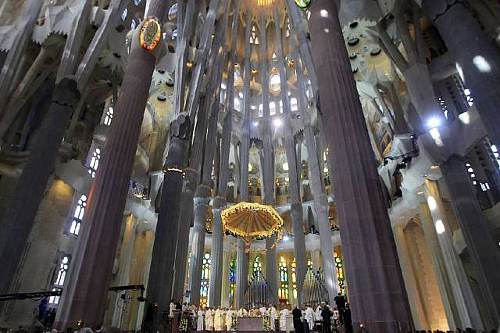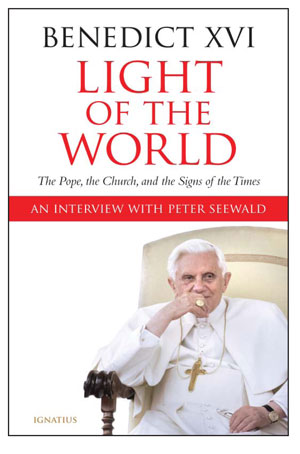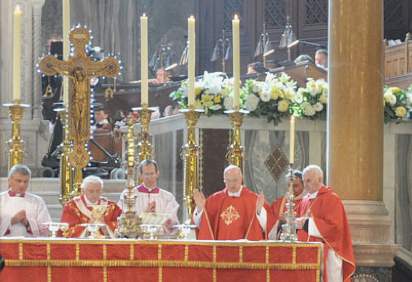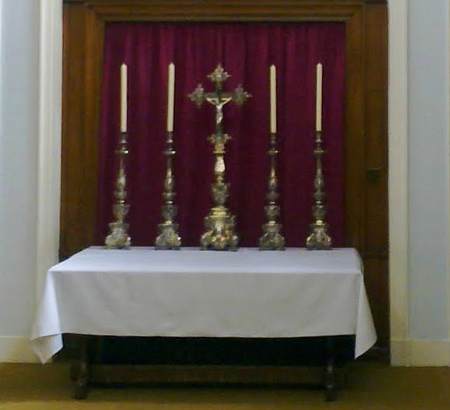I går ble det offentliggjort et brev fra pave Benedikt til alle katolske prestestudenter. Det kan leses i sin helhet på Vatikanets nettsider, og jeg tar med et utdrag her:
Dear Seminarians,
When in December 1944 I was drafted for military service, the company commander asked each of us what we planned to do in the future. I answered that I wanted to become a Catholic priest. The lieutenant replied: “Then you ought to look for something else. In the new Germany priests are no longer needed”. …..
The seminary is a community journeying towards priestly ministry. I have said something very important here: one does not become a priest on one’s own. The “community of disciples” is essential, the fellowship of those who desire to serve the greater Church. In this letter I would like to point out – thinking back to my own time in the seminary – several elements which I consider important for these years of your journeying.
1. Anyone who wishes to become a priest must be first and foremost a “man of God”, to use the expression of Saint Paul (1 Tim 6:11). For us God is not some abstract hypothesis; he is not some stranger who left the scene after the “big bang”. God has revealed himself in Jesus Christ. In the face of Jesus Christ we see the face of God. …
2. For us God is not simply Word. In the sacraments he gives himself to us in person, through physical realities. At the heart of our relationship with God and our way of life is the Eucharist. Celebrating it devoutly, and thus encountering Christ personally, should be the centre of all our days. …
3. The sacrament of Penance is also important. It teaches me to see myself as God sees me, and it forces me to be honest with myself. It leads me to humility. … Even when we have to struggle continually with the same failings, it is important to resist the coarsening of our souls and the indifference which would simply accept that this is the way we are. …
4. I urge you to retain an appreciation for popular piety, which is different in every culture yet always remains very similar, for the human heart is ultimately one and the same. Certainly, popular piety tends towards the irrational, and can at times be somewhat superficial. Yet it would be quite wrong to dismiss it. …
5. Above all, your time in the seminary is also a time of study. The Christian faith has an essentially rational and intellectual dimension. …. I can only plead with you: Be committed to your studies! Take advantage of your years of study! You will not regret it. Certainly, the subjects which you are studying can often seem far removed from the practice of the Christian life and the pastoral ministry. Yet it is completely mistaken to start questioning their practical value by asking: Will this be helpful to me in the future? Will it be practically or pastorally useful? The point is not simply to learn evidently useful things, but to understand and appreciate the internal structure of the faith as a whole, …
6. Your years in the seminary should also be a time of growth towards human maturity. It is important for the priest, who is called to accompany others through the journey of life up to the threshold of death, to have the right balance of heart and mind, reason and feeling, body and soul, and to be humanly integrated. ….
7. The origins of a priestly vocation are nowadays more varied and disparate than in the past. Today the decision to become a priest often takes shape after one has already entered upon a secular profession. Often it grows within the Communities, particularly within the Movements, … As a result, candidates for the priesthood often live on very different spiritual continents. It can be difficult to recognize the common elements of one’s future mandate and its spiritual path. For this very reason, the seminary is important as a community which advances above and beyond differences of spirituality. …
Dear seminarians, with these few lines I have wanted to let you know how often I think of you, especially in these difficult times, and how close I am to you in prayer. Please pray for me, that I may exercise my ministry well, as long as the Lord may wish. I entrust your journey of preparation for priesthood to the maternal protection of Mary Most Holy, whose home was a school of goodness and of grace. May Almighty God bless you all, the Father, the Son and the Holy Spirit.
From the Vatican, 18 October 2010, the Feast of Saint Luke the Evangelist.
Yours devotedly in the Lord, BENEDICTUS PP. XVI

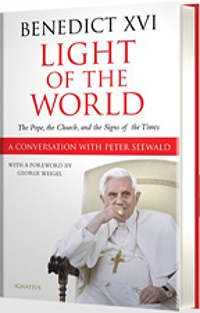
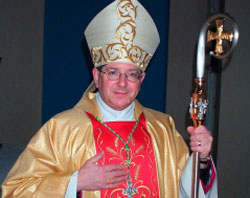 Én av de fem anglikanske biskopene som har annonsert at de vil konvertere, forteller at det var pave Benedikts brev Angecalorum Cætibus som forandret situasjonen:
Én av de fem anglikanske biskopene som har annonsert at de vil konvertere, forteller at det var pave Benedikts brev Angecalorum Cætibus som forandret situasjonen: